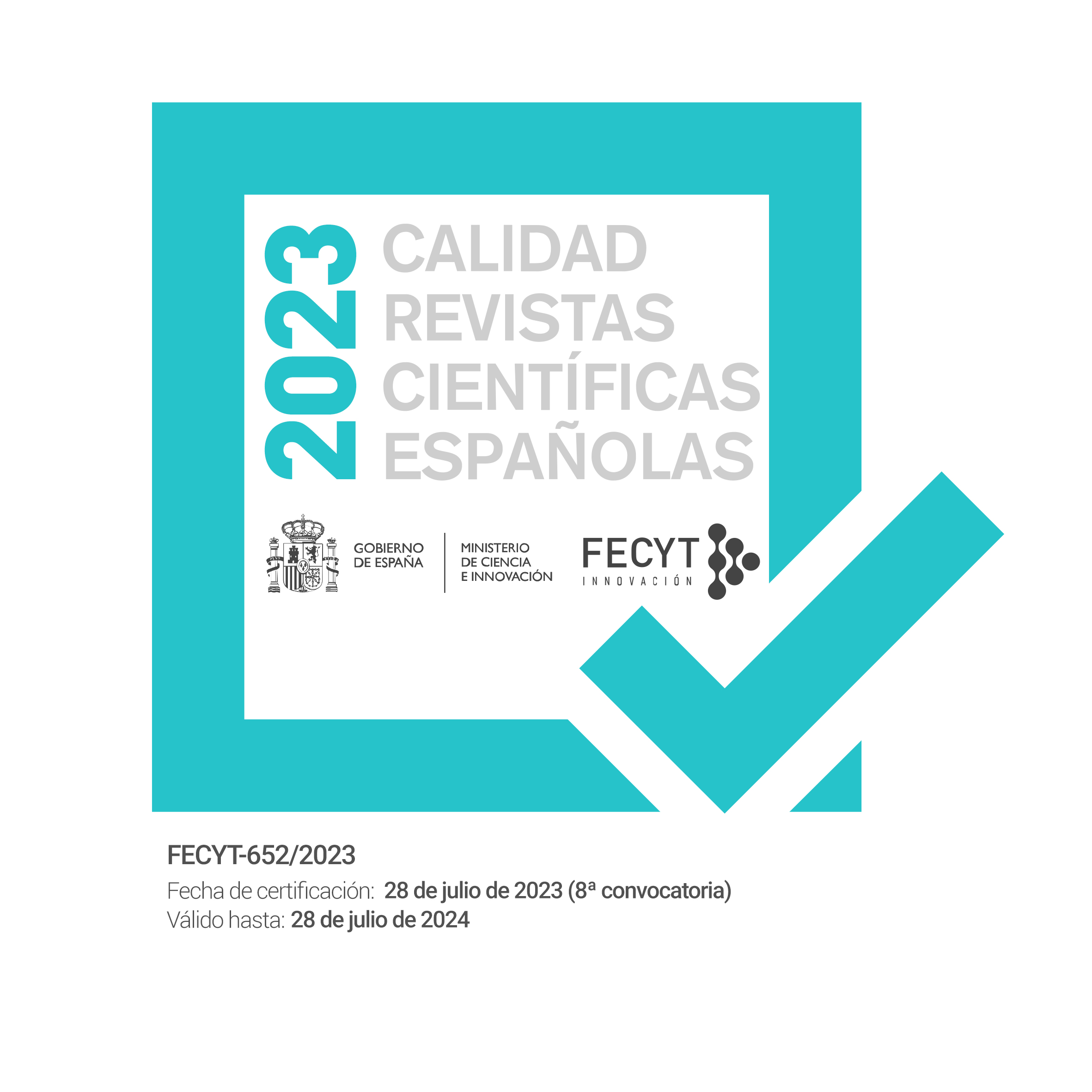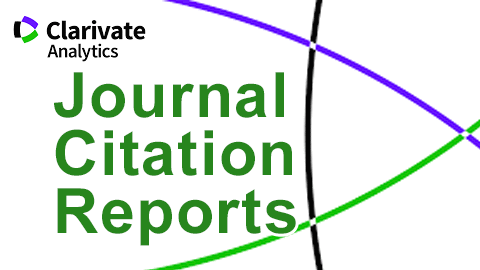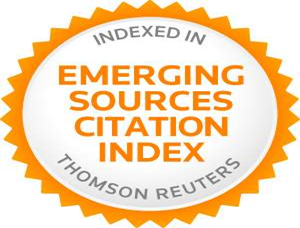Exploring the L2 Motivational Self System through Lexical Availability and Overseas Experience amongst English-Major Students in Gran Canaria
Abstract
Abstract
This article provides an analysis of the motivational nature of seventy-nine English-major students in the second year of their degree in Modern Languages at the University of Las Palmas de Gran Canaria using Dörnyei’s L2 Motivational Self System, in combination with an exploration of the variables of lexical availability and overseas experience in the target language context. Preliminary findings indicate the following: 1) L2 learning experience emerged as the most significant predictor of subjective intended effort in a model which showed that the relationship between the motivational variables considered was statistically significant; 2) the stronger a student’s Ideal L2 Self, the wider their lexical availability, although analysis of the Ought-to Self showed its marginal relevance; 3) students who have been to an English-speaking country showed a stronger Ideal L2 Self and a richer lexical repertoire.
Keywords: English L2; lexical availability; L2 Motivational Self System; overseas experience.
Resumen
Este artículo da a conocer el análisis de la motivación de setenta y nueve estudiantes de Inglés como Lengua Extranjera en su segundo año del grado en Lenguas Modernas en la Universidad de Las Palmas de Gran Canaria a través del Sistema Motivacional del Yo L2 de Dörnyei, la disponibilidad léxica y la variable de estancia en un país de habla inglesa Los resultados preliminares indican lo siguiente: 1) La experiencia de aprendizaje de L2 fue el predictor más significativo del esfuerzo en un modelo en el que la relación entre las variables de motivación consideradas fue estadísticamente significativo; 2) cuánto más fuerte el Yo Ideal, más amplia la disponibilidad léxica, aunque el análisis de Yo Deóntico mostró la relevancia marginal de este factor; 3) los estudiantes que han ido a un país de habla inglesa tienen un Yo Ideal más fuerte y un repertorio léxico más amplio.
Palabras clave: Inglés L2; disponibilidad léxica; Sistema Motivacional del Yo L2; estancia en un país de habla inglesa.
References
Arndt, H. L. & Woore, R. (2018). Vocabulary learning from watching YouTube videos and reading blogposts. Language Learning & Technology, 22(1), 124-142. doi: 10125/44660
Al-Hoorie, A. H. (2018). The L2 Motivational Self System: A meta-analysis. Studies in Second Language Learning and Teaching, 8(4), 721-54. doi: 10.14746/ssllt.2018.8.4.2
Brady, I. K. (2019). A multidimensional view of L2 motivation in southeast Spain: Through the «Ideal Selves’ looking glass. Porta Linguarum, 31, 37-52.
Carcedo González, A. (2000). Disponibilidad léxica en inglés como lengua extranjera. El caso finlandés. Turku: University of Turku.
Csizér, K. & Kormos, J. (2009). Learning experiences, selves and motivated learning behaviour: A comparative analysis of structural models for Hungarian secondary and university learners of English. In Z. Dörnyei, & E. Ushioda (Eds.), Motivation, language identity and the L2 self. (pp. 98-117). Bristol: Multilingual Matters.
Dimitrijévic, N. (1969). Lexical Availability; A New Aspect of the Lexical Availability of Secondary School Children. Heidelberg: Groos.
Dörnyei, Z. (2001). Teaching and Researching Motivation. Harlow: Longman.
Dörnyei, Z. (2005). The Psychology of the Language Learner: Individual Differences in Second Language Acquisition. London: Lawrence Erlbaum.
Dörnyei, Z. (2007). Research Methods in Applied Linguistics: Quantitative, Qualitative and Mixed Methodologies. Oxford: Oxford University Press.
Dörnyei, Z. (2009). The Psychology of Second Language Acquisition. Oxford: Oxford University Press.
Dornyei, Z. (2019). Towards a better understanding of the L2 learning experience, the cinderella of the L2 Motivational Self System. Studies in Second Language Learning and Teaching, 9(1), 19-30. doi: 10.14746/ssllt.2019.9.1.2
Dörnyei, Z. & Ushioda, E. (2009). Motivation, Language Identity and the L2 Self. Bristol: Multilingual Matters.
Ellis, R. (1997). Second Language Acquisition. Oxford: Oxford University Press
Ferreira Campos, R. & Max S. E. (2010). Redes semánticas en el léxico disponible de inglés L1 e inglés LE. ONOMÄZEIN, 21, 133-53.
Ferreira Campos, R. & Max S. E. (2014). Lexical availability of basic and advanced semantic categories in English L1 and English L2. In Jiménez Catalán (Ed.), Lexical Availability in English and Spanish as a Second Language (pp. 15-35). Netherlands: Springer.
Ferreira, R. A., Garrido Moscoso, J. I. & Guerra Rivera, A. (2019). Predictors of lexical availability in English as a second language. ONOMÁZEIN, 46, 18-34. doi: 10.7764/onomazein.46.03
Gallego Gallego, D. J. (2014). Léxico disponible de estudiantes de español como lengua extranjera en la comunidad de Madrid. PhD dissertation, University of Alcalá, Spain.
Gardner, R. C. (2005). Integrative motivation and second language acquisition. Canadian Association of Applied Linguistics/Canadian Linguistics Association Joint Plenary Talk. London, Canada: The University of Western Ontario.
Gardner, R. C. (2007). Motivation and second language acquisition. Porta Linguarum 8, 9-20.
Gougenheim, G., René M., Rivenc P. & Sauvageot, A. (1967) [1964]. L’élaboration du français élémentaire (1er degré). Étude sur l’établissement d’un vocabulaire et d’une grammaire de bas (nouvelle edition refondue et argumentée). Paris: Didier.
Hadfield, J. & Dörnyei, Z. (2013). Motivating Learning. Harlow: Longman.
Hernández-Muñoz, N., Izura, C. & Tomé, C. (2014). Cognitive aspects of lexical availability in a second language. In R. M. Jiménez Catalán (Ed.), Lexical availability in English and Spanish as a second Language (pp. 169-186). Netherlands: Springer.
Higgins, E. T. (1998). Promotion and prevention: Regulatory focus as a motivational principle. Advances in Experimental Social Psychology, 30, 1-46.
Jiménez Catalán, R. M., Agustín Llach, M. P., Fernández Fontecha, A. & Canga Alonso, A. (2014). The effect of age on EFL learners’ lexical availability: Word responses to the cue words «Town’ and «Countryside’. In R. M. Jiménez Catalán (Ed.), Lexical Availability in English and Spanish as a Second Language (pp. 37-51). Netherlands: Springer.
López Morales, H. (2014). Lexical availability studies. In R. M. Jiménez Catalán (Ed.), Lexical Availability in English and Spanish as a Second Language (pp. 1-11). Netherlands: Springer.
Martínez-Adrián, M. & Gallardo-del-Puerto, F. (2017). The effects of language typology on l2 lexical availability and spelling accuracy. International Journal of English Studies, 17(2), 63-79. doi: 10.6018/ijes/2017/2/256411
Oyserman, D. & Hazel, H. R. (1990). Possible selves and delinquency. Journal of Personality and Social Psychology 59, 112-25.
Oxbrow, G. L. & Rodríguez Juárez, C. (2010). Language learning motivation and learner autonomy: Bridging the gap. Revista Canaria de Estudios Ingleses, 61, 57-72.
Papi, M. (2010). The L2 motivational self system, L2 anxiety, and motivated behavior: A structural equation modeling approach. System, 38(3), 467–79. doi: 10.1016/j.system.2010.06.011
Papi, M. & Teimouri, Y. (2012). Dynamics of selves and motivation: A cross-sectional study in the EFL context of Iran. International Journal of Applied Linguistics, 22, 287–309. doi: 10.1111/j.1473-4192.2012.00312.x
Ryan, S. (2009). Self and identity in L2 motivation in Japan: The Ideal L2 Self and Japanese learners of English. In Z. Dörnyei & E. Ushioda (Eds.), Motivation, Language Identity and the L2 Self (pp. 120-143). Bristol: Multilingual Matters.
Samper Hernández, M. (2002). Disponibilidad léxica en alumnos de español como lengua extranjera. Málaga: ASELE.
Sandu, B. (2013). Romanian students’ lexical availability in Spanish as a foreign language. Estudios interlingüísticos, 1, 121-133.
Sandu, B. & Oxbrow, G. (2020). Selected poster presentations from the British Association of Applied Linguistics conference, Manchester Metropolitan University, UK, August 2019: Lexical availability and the L2 Motivational Self System. Language Teaching, 53(3), 378-382. doi: 10.1017/S0261444820000154
Taguchi, T., Magid, M. & Papi, M. (2009). The L2 Motivational Self System among Japanese, Chinese and Iranian learners of English: A comparative study. In Z. Dörnyei & E. Ushioda (Eds.), Motivation, Language Identity and the L2 Self (pp. 66-97). Bristol: Multilingual Matters.
You, C. J., Dörnyei Z. & Csizer K. (2016). Motivation, vision, and gender: A survey of learners of English in China. Language Learning, 66(1), 94–123. doi: 10.1111/lang.12140
Downloads
Published
Issue
Section
License
Attribution - Non-commercial (CC BY-NC). Under this license the user can copy, distribute and publicly display the work and can create derivative works as long as these new creations acknowledge the authorship of the original work and are not used commercially.
Authors retain the copyright and full publishing rights without restrictions.









